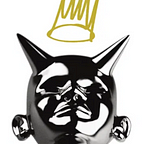Buying blockchains is like buying shoes
The blockchain race is Ethereum’s to lose, and it’s not even close. If you think of Ethereum as a development platform, it has it all: a strong brand, many developers building on top of it, and scalability solutions on the horizon.
The question on everyone’s mind is this one: can competing blockchains replicate Ethereum’s community faster than Ethereum can scale? So far, the answer is no, and it isn’t for a lack of trying. In truth, there are very few blockchain developers out there, and the ones that are in the industry won’t leave Ethereum for a blockchain that promotes itself as better, faster, cheaper.
Many investors seem to think that the most technically superior blockchain will win the race. Yet every time a better, faster, and cheaper blockchain launches, what you end up with is a “ghost chain” — it’s fast all right, but nobody is using it. Ghost chains launch so often that it’s peculiar investors haven’t figured out why they go unused.
I do not enjoy seeing others lose so much money, so I thought I will try to explain why ghost chains lose time after time.
In the real world, superior blockchain performance is not the key criteria developers use when evaluating which blockchain to build on. While blockchains are very complex pieces of technology, the purchasing decisions made by their users are not. It helps to think of blockchain developers as high school students in gym class — if you want to be part of the “in crowd,” you’re going to ask your parents for Jordan’s rather than New Balance shoes, even if the latter is the superior running shoe.
Although Jordan’s aren’t the best shoes when evaluated on a pure utility basis, that doesn’t stop them from being the winning shoe for high school kids. It’s not rocket science: buying Jordan’s is one of the fastest ways to signal you are part of the cool kids club. For many kids, that’s a desirable place to be.
Choosing Ethereum over competing blockchains requires going through a similar purchasing decision. Developers don’t want to be renegades by choosing another blockchain, especially if all of their peers are building on top of Ethereum. To do so would be to commit social suicide — peers will judge you if you move your application from Ethereum to EOS, Binance Chain, or Solana, and the consequence will stop you from doing it.
There is more to Ethereum’s edge than just social signaling, of course. But it’s a huge part of it, and it’s mostly under-discussed. It’s like the great Luciano Pavarotti said: “to be in great demand and to command high fees you must be good of course, but you must also be famous. The two are different things.” It’s not enough to be better than Ethereum. You need to get into the heads of people too.
